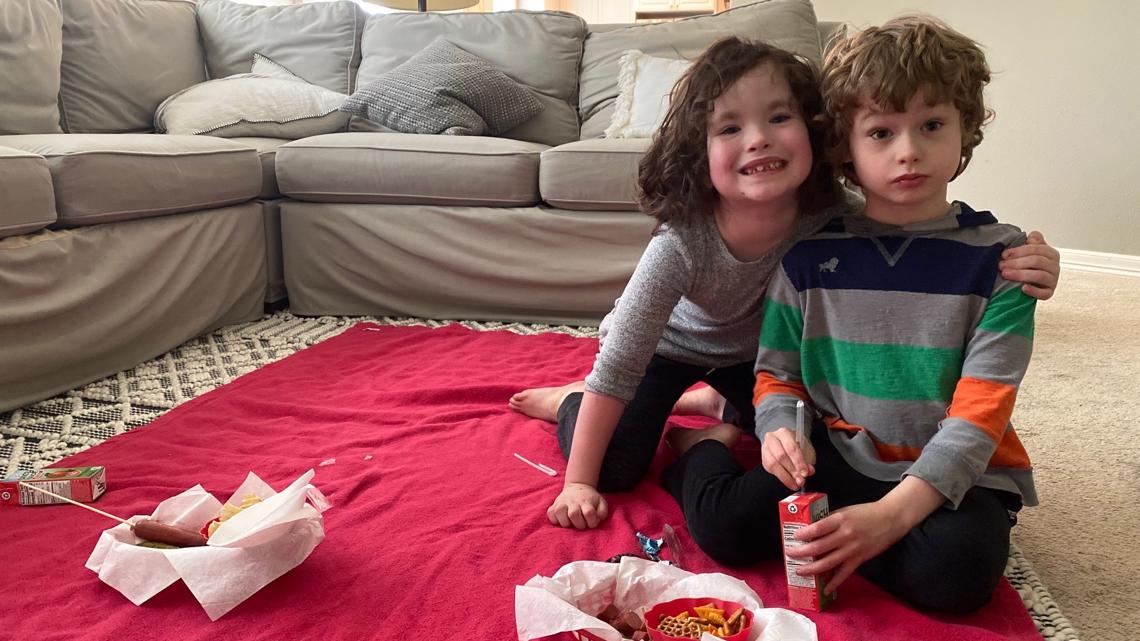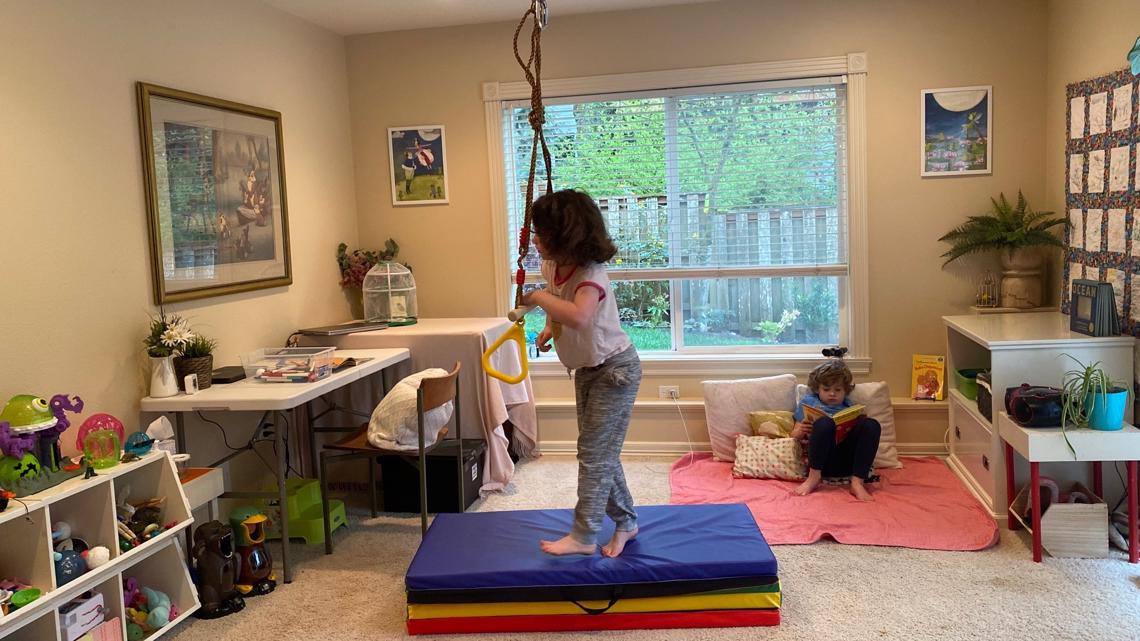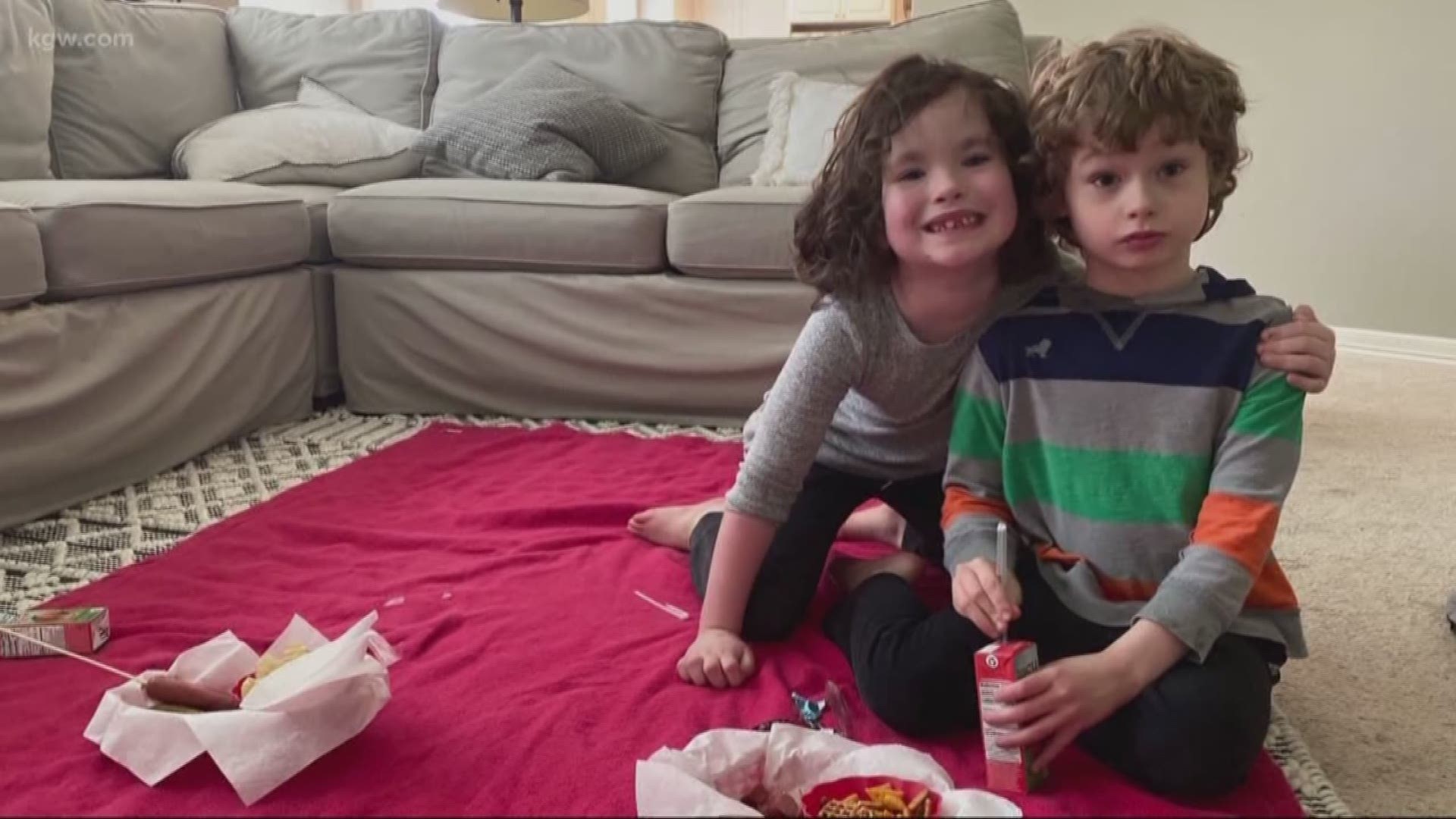PORTLAND, Ore. — Schools closing for the rest of the year means families have to figure out distance learning for the long haul. So far, that’s hasn’t been a breeze.
A lot of parents have found themselves becoming a teacher of sorts, and that includes parents whose kids have special needs.
So, when Oregon Gov. Kate Brown announced this week that school would be closed for the remainder of the year, it was a tough reality.
“The honest answer is I had a cocktail,” said Misten Daniels, laughing. “The reality was, wow this is a long time.”
Daniels is one of the many parents who have now added teaching to their repertoire. While she does have a job, she is fortunate that it’s flexible enough so she can spend time teaching her two kids during the day.
Her daughter Georgia is in first grade, while her son Johnny is in kindergarten. Both have special needs.
“We’re doing well, considering,” she said.


Learning remotely has not been easy for many special needs kids and their parents. Their needs can be great, and individualized. Daniels said she’s done a lot of research on curriculum and often has to prepare ahead of time for what she's going to be teaching her kids the next day.
“To have it be successful takes a lot of work,” said Daniels.
She's created a room in the house called “the classroom.”


“We have our math time. We have a reading time in our day,” Daniels said.
They also get recess, lunch, maybe some art or physical education. Daniels said it’s all an attempt to replicate what the kids’ day at school might actually look like, to try to maintain some semblance of familiarity.
She said the biggest hurdle, but also most helpful thing for her, is keeping her kids on a consistent and predictable written schedule. That visual element is important for kids with developmental disabilities or other special needs.
“The research really says visuals are what supports their learning,” said Kara Magee-Arick, director of professional development at STAR Autism Support, a Portland-based organization that specializes in special education.
“We provide curriculum and training all over the world to typically public schools for students with autism and other developmental disabilities,” said Magee-Arick.
In this COVID-19 pandemic, STAR Autism Support has had time to work out remote learning
“We had a bit of a head start in our organization because we work in China with educators there, and this happened a few months ago in China,” Magee-Arick said.
The organization has been helping teachers all over connect with their special education students remotely.
“A lot of the virtual learning that we’re having to do...can’t be 20 students on a screen or doing independent work tasks on their own. It still needs to be that instructor-led instruction that’s individualized to that unique student and their learning needs,” said Magee-Arick.
STAR Autism Support has also released free materials that it calls visual "home supports” to help parents who are trying to help their kids learn at home.
“Verbal alone can be difficult for them to track everything, so the more I can use visually for their learning, and the more tangible materials I can use for their learning, the better they’re doing with it,” said Daniels.
Magee-Arick said any tiny thing parents can do to support their child’s learning is enough.
We reached out to Portland Public Schools to see what its plan is for families with special needs kids. The district said case managers will be contacting families soon about their child's individual educational needs and plans for distance learning moving forward.

